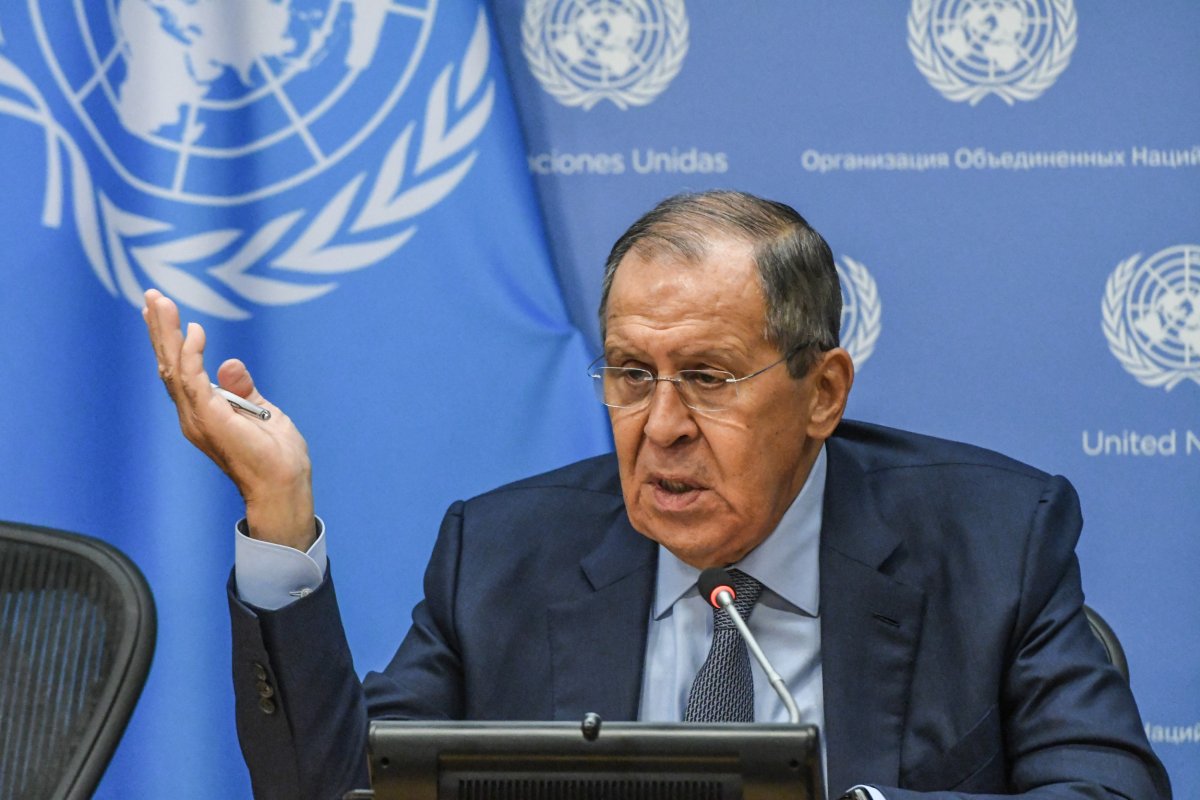As Russian President Vladimir Putin's invasion of Ukraine in late February sparked widespread criticism and sanctions, several countries maintained ties with Russia, or at least did not outright condemn the attack.
But as the war has stretched on for more than seven months and recent Ukrainian counteroffensives have increased hope for a victory against Russia, some of Putin's allies have pushed away from his regime and aggression in Ukraine.
U.S. President Joe Biden has been working to create a global coalition to isolate Russia and pressure Putin to end the war, and the latest criticism of Russia indicates Biden's strategy might be working.
As Putin announced a partial mobilization last week that would call up soldiers to fight for Russia in the war, he also backed plans for referendums in four Russian-controlled regions in eastern and southern Ukraine. Western leaders and Ukraine have stressed that they will not accept the results of such referendums, but Putin is also facing pushback from one of his allies, former Soviet Union member Kazakhstan.

Kazakhstan's Foreign Ministry said Monday that it will not recognize the potential Russian annexation of eastern Ukrainian regions through the referendums, Reuters reported. This is not the first time that Kazakhstan, which, along with Russia, is a member of the NATO-style Collective Security Treaty Organization (CSTO), has broken with Russian positions on aspects of the war.
In June, Kazakh President Kassym-Jomart Tokayev said that his country would not recognize the self-proclaimed independence of two Russian-backed separatist areas in eastern Ukraine. He also called for Russia-Ukraine peace talks and offered help with mediation, according to Russian state media.
Turkish President Recep Tayyip Erdoğan, who has maintained diplomatic and economic ties with Russia since the start of the war, told PBS' Judy Woodruff in an interview last week that Russia should not be permitted to keep any of the Ukrainian territory it has captured. He also stressed that the invasion itself "cannot be justified."
Following the mobilization announcement, Belarusian President Alexander Lukashenko said last week that his troops would not be mobilizing alongside Russia's, leaving Putin to deal with a soldier shortfall by himself.
At the United Nations General Assembly last week, Russia faced vehement criticism for the aggression in Ukraine from countries that have called for an end to the violence since the beginning. But even some nations that have remained friendly with Russia or neutral on the invasion, such as Brazil and India, expressed desire for the war to end, the Associated Press reported.
Indian External Affairs Minister S. Jaishankar called for "objective and independent" investigations into potential human rights and international law violations. He specifically cited alleged Russian killings in the Ukrainian city of Bucha, where Putin's army has been accused of committing war crimes.
"Even a number of nations that maintain close ties with Moscow have said publicly that they have serious questions and concerns about President Putin's ongoing invasion," U.S. Secretary of State Antony Blinken said last week.
During a meeting of heads of state in Uzbekistan last week, Indian Prime Minister Narendra Modi skipped hugging Putin and told the Russian president that "today's era is not one of war," according to a translation by Brookings Institution senior fellow and The India Project Director Tanvi Madan. Modi also mentioned moving toward a "path of peace" while stressing his desire for India and Russia to remain allies.
India is a crucial partner for Putin, and its oil purchases from Russia have at least partially offset the economic fallout Putin faced since the war started. Though India has not publicly supported or endorsed Russia's invasion, it abstained from voting when the U.N. General Assembly adopted a resolution in April calling for Russia to be suspended from the Human Rights Council over the Ukraine attack.
At the UN gathering last week, top Putin ally Belarus spoke in support of Russia, but it also called for the conclusion of fighting that it described as a "tragedy." China, which has continued to buy Russian oil amid the war and voted against the U.N. resolution in April, said that facilitating peace talks was a "pressing priority."
"China supports all efforts conducive to the peaceful resolution of the Ukraine crisis," Chinese Foreign Minister Wang Yi said, according to The Guardian.
In a June phone conversation, Chinese President Xi Jinping pledged to continue China's "mutual support with Russia on issues concerning core interests and major concerns, such as sovereignty and security, and to deepen strategic coordination between the two countries."
Despite this reaffirmation of Russia-China ties months after the invasion of Ukraine began, Putin acknowledged at the Uzbekistan summit last week that the Chinese leader had expressed "questions and concern" about the war, according to Radio Free Europe.
Newsweek reached out to Russia's Foreign Ministry for comment.
Update 9/26/22, 4 p.m. ET: This story was updated with additional information.
Uncommon Knowledge
Newsweek is committed to challenging conventional wisdom and finding connections in the search for common ground.
Newsweek is committed to challenging conventional wisdom and finding connections in the search for common ground.
About the writer
Zoe Strozewski is a Newsweek reporter based in New Jersey. Her focus is reporting on U.S. and global politics. Zoe ... Read more
To read how Newsweek uses AI as a newsroom tool, Click here.








